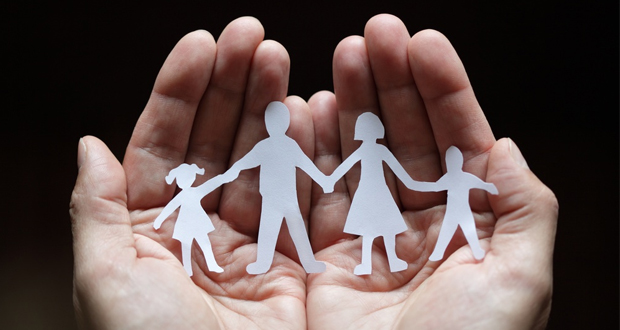Raising the next generation – practical tips from the Sunnah
In a well-known hadīth, the Prophet (sallAllāhu ʿalayhi wa sallam) said:
“Indeed each of you is a shepherd and each of you will be questioned regarding his flock. The commander who is in authority over people is responsible and he will be questioned regarding his responsibility. The man is responsible over the inhabitants of his house and he is the one who will be questioned about them. The wife is responsible in her husband’s house and she will be questioned about it. The servant is responsible regarding his master’s property, and he will be questioned about it. Indeed each of you is a shepherd and each of you will be questioned about his flock.”[1]
There is a clear distinction between the standard education process versus Islamic tarbiyah, the latter encompassing a far wider scope, and being a responsibility tied to every person whom Allah has granted some form of guardianship to—his or her flock.
This is undoubtedly a huge responsibility, which can be a great blessing and source of reward if fulfilled correctly. Whilst there is a plethora of parenting or nurturing books and websites available, what better place to look for practical guidance and solutions than the Sunnah of our beloved Prophet (sallAllāhu ʿalayhi wa sallam)?
There is a vast collection of ahādīth where we can learn from the tarbiyah given to the Companions, both young and old, which cover the various dimensions of Islamic tarbiyah, including:
- Intellectual development;
- Creedal development;
- Devotional development;
- Behavioural development;
- Skills development.
With these in mind, just over 40 narrations have been collected—most of which are reminders for ourselves as parents to act upon first and foremost—whilst a handful are perhaps more story-like to narrate to the children, although we still can certainly benefit from hearing and reflecting upon them.
The famous hadith on actions being by their intentions has not been included as the focus is specifically on outward actions that our children can learn from us through witnessing them in action (and by hearing these narrations), but of course we always need to ensure we do everything solely seeking the pleasure of Allāh.
We begin with narrations pertaining to creedal and devotional development, for we have not been created by Allāh except to worship Him. As such, it is key to build love for our Lord, and know that He alone is worthy of worship, as this is the basis for success in anything we do. Thus, the first 14 narrations focus on the virtues of the obligatory and strongly recommended acts of worship, including adhkār and developing a strong attachment to the Book of Allāh.
Nurturing devotion in children
- A man came to Messenger of Allah (ﷺ) and said, “Direct me to a deed which will admit me to Jannah and take me away from the Fire”. The Messenger of Allah (ﷺ) said, “Worship Allah and associate no partner with Him, perform the Salāh, pay Zakāh, and maintain the ties of kinship.”[2]
- The Messenger of Allah (ﷺ) said: “The similitude of five prayers is like an overflowing river passing by the gate of one of you in which he washes five times daily.”[3]
- The Messenger of Allah (ﷺ) observed: The best of the deeds is the (observance of) prayer at its proper time and kindness to the parents.[4]
These first three narrations may well contain information already well-known to many readers, but if we pause and reflect upon them they are truly key to our success in this life and the next. Through our strict observance of these acts, our children will learn of their importance and necessity long before they need to start performing these themselves, and will eagerly await their turn too, inshā’Allāh.
Next, we consider some of the virtues of acts beyond the obligatory prayers.
- Allah’s Messenger (ﷺ) said, “The prayer in congregation is twenty-seven times superior to the prayer offered by a person alone.”[5]
- Allah’s Messenger (ﷺ) said, “The two rakʿāt at dawn are better than this world and what it contains.”[6]
- The Prophet (ﷺ) said: “The key to Paradise is prayer; the key to prayer is wudu (ablution).”[7]
- The Messenger of Allah (ﷺ) said: “Whoever persists in praying twelve rakʿāt each day and night, Allah, the Mighty and Sublime, will build for him a house in Paradise: four before Zuhr and two after Zuhr, two rakʿāt after Maghrib, two rakʿāt after Isha’ and two rakʿāt before Fajr.”[8]
Often those who are just reaching the age where they start to pray find these more exciting than the obligatory prayers themselves, given the amazing reward on offer, such as a house in Paradise! The aim is to make these virtues understood early on and create a desire to attain them.
Regularly reading these beautiful ahādīth to our children once they are able to understand is important, but additionally putting them into action ourselves is what will truly impact them inshā’Allāh.
We then move on to instilling love for the Qur’ān.
- The Prophet (ﷺ) said, “The best among you (Muslims) are those who learn the Qur’ān and teach it.”[9]
- The Prophet (ﷺ) said: “To Allah belongs a special group of people.” It was asked, “Who are they, O Messenger of Allah?” He (ﷺ) replied, “They are the people of the Qur’ān; the people of Allah and His select group of people.”[10]
- The Prophet (ﷺ) said: “Beautify the Qur’ān with your voices.”[11]
Some scholars mention that if one starts reciting Qur’an to their child only once they are born, even that is an opportunity missed. Rather the child should be regularly hearing the Speech of Allah recited from when they are in the wombs. Instilling love and appreciation for the Qur’ān right from the beginning will inshā’Allāh make our children excited to spend time with it and begin a long and fruitful journey reciting, memorising and pondering over its verses.
Again, these narrations can and should be mentioned to our children, but by acting upon them and making our houses places where the Qur’ān is venerated, recited, reflected upon every single day, is the best way of ensuring the message is received and appreciated.
Lastly, in this part of the collection, we conclude with the virtues of further supererogatory acts, including dhikr, consistency in good deeds, and making duʿā in the last third of the night.
- The Prophet (ﷺ) said, “There are two words which are dear to the Most Merciful, that are and very light on the tongue (to say), but very heavy on the scales. They are: ”SubhānAllāh wa bihamdihi” and ”SubhānAllāh al-ʿAdhīm“.[12]
- The Messenger of Allah (ﷺ) was asked about the act most pleasing to Allah. He replied: “That which is done continuously, even if it is small.”[13]
- The Messenger of Allah (ﷺ) said, “My servant does not draw near to Me with anything more loved to Me than the religious duties I have obligated upon him. And My servant continues to draw near to me with nafl (supererogatory) deeds until I love him. When I love him, I am his hearing with which he hears, and his sight with which he sees, and his hand with which he strikes, and his foot with which he walks. Were he to ask [something] of Me, I would surely give it to him; and were he to seek refuge with Me, I would surely grant him refuge.’”[14]
- Allah’s Messenger (ﷺ) said, “Our Lord, the Blessed, the Superior, descends every night to the nearest Heaven to us when the last third of the night remains, saying: “Is there anyone to invoke Me, so that I may respond to invocation? Is there anyone to ask Me, so that I may grant him his request? Is there anyone seeking My forgiveness, so that I may forgive him?”[15]
From these 14 narrations, we remind ourselves of the countless blessings we have been given as believers. By frequently reading them with our families, and reflecting and acting upon them with sincerity, inshā’Allāh we will be able to nurture our children accordingly, leading to both ours and their ultimate success. After all, a desire to draw close to Allāh is imprinted upon the fitra (innate, natural disposition) of every child, and being informed of and reflecting upon ahādīth such as the above will—with the tawfīq of Allāh—be like watering a healthy seed planted into fertile, unpolluted soil.
In part 2, we look forward to reflecting over narrations pertaining to some of the other dimensions of tarbiyah, with particular focus on behavioural development and good manners.
[donationbanner]
Source: www.islam21c.com
Notes:
[1] Al-Bukhari & Muslim, narrated by ‘Abdullah Ibn ‘Umar
[2] Al-Bukhari & Muslim, on the authority of Abu Ayyub Khalid bin Zaid Al-Ansari
[3] Muslim, on the authority of Jabir b. ‘Abdullah
[4] Muslims, on the authority of ‘Abdullah
[5] Al-Bukhari, narrated by `Abdullah bin `Umar
[6] Muslim, on the authority of ‘A’isha
[7] Musnad Ahmad, narrated by Jabir Ibn ‘Abdullah
[8] Al-Nasai, narrated by ‘A’isha
[9] Al-Bukhari, narrated by `Uthman
[10] Musnad Ahmad, reported by Anas
[11] Abu Dawud, narrated by Al-Bara’ ibn Azib
[12] Al-Bukhari, narrated by Abu Hurayrah
[13] Muslim, reported by ‘A’isha
[14] Al-Bukhari, narrated by Abu Hurayrah
[15] Al-Bukhari & Muslim, narrated by Abu Hurayrah










As Salam Alaikum, regarding I am human, about 100 yrs, back I would have answered in an affirmative way, but now I am confused, after learning all His creation worshiping Him, I thought the only thing separated us from His other creation was the intellect which does not exist anymore. That is why I was afraid to say Human thinking I might be lying if I did hope Allah (SWT) will forgive me.
Allahu Walam.
The question I have about your website, is there a special way to read? because it is moving up and down.
Jazak Allah Khairen